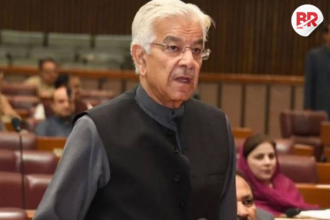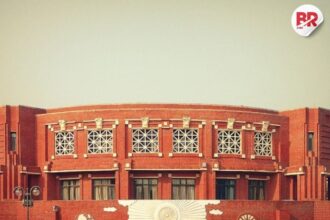
The Battle for Khartoum: Sudanese Army Takes Control of Presidential Palace
In a dramatic turn of events, the Sudanese army announced on Friday that it has seized full control of the presidential palace in downtown Khartoum. This marks a significant gain in a two-year-long conflict with the paramilitary Rapid Support Forces (RSF), which has threatened to partition the country.
A Major Victory Amidst Ongoing Conflict
The army’s statement came hours after the RSF claimed it was still near the palace. The RSF also stated that it had launched an attack, killing dozens of soldiers. Army sources revealed that the fighters were about 400 meters away.

Additionally, the army suffered a drone attack that claimed the lives of three state television journalists.
Despite these challenges, the army has been making recent gains, retaking territory in the center of the country. Meanwhile, the RSF has consolidated control in the west, moving Sudan closer to a de facto partition. The RSF is even attempting to establish a parallel government in its controlled areas, though this is unlikely to gain international recognition.
The Human Cost of War
The conflict, which began in April 2023 over the integration of the RSF into the armed forces, has led to what the U.N. calls the world’s largest humanitarian crisis. Famine and disease have spread across the country, affecting millions. Both sides have been accused of war crimes, with the RSF also facing genocide charges, which they deny.
Also Read: 70 Lives Lost: Israel’s Renewed Ground Operations Spark Outrage in Gaza
A Glimmer of Hope for Khartoum Residents
Many Sudanese citizens welcomed the army’s announcement. “The liberation of the palace is the best news I’ve heard since the start of the war,” said Mohamed Ibrahim, a 55-year-old Khartoum resident. “It means the start of the army controlling the rest of Khartoum.”
However, intermittent gunfire could still be heard in Khartoum on Friday, and bloody fighting is expected as the army seeks to corner the RSF, which still occupies large areas south of the palace.
The war erupted two years ago as Sudan was planning a transition to democratic rule. The army and RSF had initially joined forces to oust Omar al-Bashir in 2019 and later to remove civilian leadership. However, tensions between the two groups have been high, with Bashir developing the RSF as a counterweight to the army.
As the conflict continues, the future of Sudan remains uncertain. The army’s recent gains offer a glimmer of hope, but the road to peace is still fraught with challenges.
Also Read: Iran’s Khamenei Warns US: ‘Any Action Against Tehran Will Be Met with Force’












